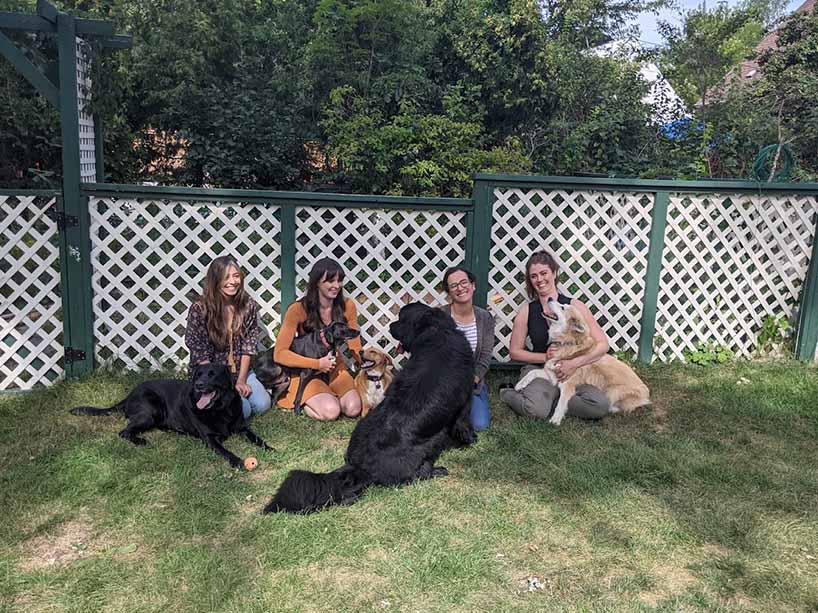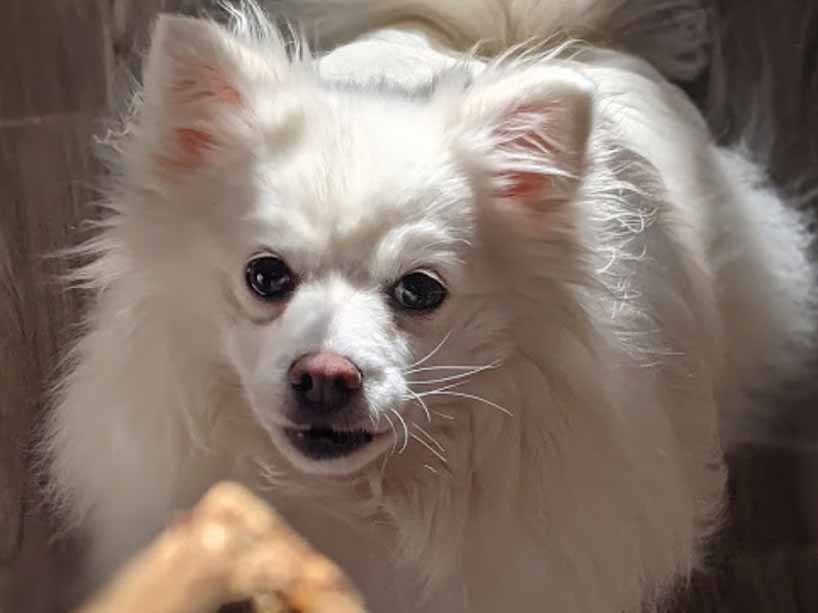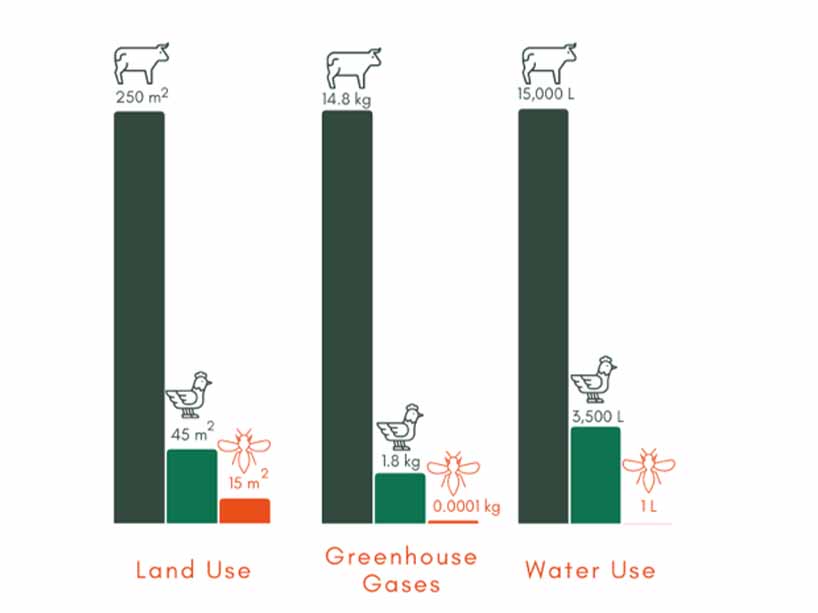Evolving pet food to reduce our carbon footprint

The HOPE Pet Food team with their own four-legged friends.
The co-founders of HOPE Pet Food (external link) Sofia Bonilla and Kasey Dunn say that their goal for their business is straightforward: help their customers reduce their carbon footprint by creating radically better, meat-free and sustainable pet food.
Their secret ingredient? Insects!
And while it might sound strange initially, dogs love it, and it’s going to significantly reduce carbon emissions. “We tried to find ingredients that have the nutrients that animals need and that have a low environmental impact,” says Bonilla, who has a PhD in Bioprocess Engineering and has focused her research around proteins for the last 12 years.
When Bonilla and Dunn decided to take their business the route of for-profit social venture, they connected with the university’s Social Ventures Zone, and they’re already making a name for themselves there -- they’ve been chosen as a finalist for the zone’s award, Penny Appeal Social Accelerator Fund.
“Insects are great because they are palatable to dogs. They also have great nutritional value and the amino acid profile of insects is very comparable to beef or chicken or any other traditional source.”

Dogs are loving HOPE Pet Food’s new treats, even if they don’t know what a responsible choice they are in reducing carbon emissions.
While insects may pack the same nutritional punch as typical meats, harvesting them and turning them into food for dogs uses just a fraction of the land and water resources. “We can reduce 70 per cent of the greenhouse gas emissions and 90 per cent of the land and water use by switching to insects,” says Bonilla.

The reduction in land use, greenhouse gas emissions and water use when using insects over chicken and beef is remarkable, amounting to up to 90 per cent in some cases.
A graph showing the significant reduction in land use, greenhouse gas emissions and water use that insects represent over both chicken and beef.
- Land use
- Beef: 250 square meters
- Chicken: 45 square meters
- Insects 15 square meters
- Greenhouse gases
- Beef: 14.8 kilograms
- Chicken: 1.8 kilograms
- Insects: 0.0001 kilograms
- Water use
- Beef: 15, 000 litres
- Chicken: 3,500 litres
- Insects: 1 litre
Dunn and Bonilla joined forces to expand the options for pet owners who want to make a greater environmental impact through their choices.
“One of the things we noticed is the changing trend in the human diet -- we've seen a huge increase in investment in meat alternatives for human diets like Beyond Meat or Impossible,” says Dunn. “We thought it was interesting that a lot of people who don't consider themselves vegetarians or vegans are diversifying their diet for moral, ethical or environmental reasons. We see our pet food as an extension of that move to do more.”
With pet ownership on the rise, and pets in North America already accounting for 25 per cent of meat consumption, their food has the potential to make major carbon reductions if it catches on.
Breaking down myths
Dunn and Bonilla have a pet nutritionist on their team, Alex Camara, who has helped to ensure their food and treats meet and exceed North American and European standards.
Part of their business ethos is communicating this process to their customers, through their blog (external link) and their marketing materials, to address myths around protein in pet foods. “I think marketing around pet food has led customers to believe that they need really high protein or it should revolve around meat ingredients,” says Dunn. “We're really trying to focus on that educational piece and dispel the myths, whether or not they buy our product.”
The Social Ventures Zone
The Social Ventures Zone is one of the 10 zone learning spaces at the university. It's the home of social innovators who are looking to build social ventures that create real impact. The zone houses social purpose businesses, nonprofits and social enterprises.
Despite joining the zone during the pandemic and never attending the space in person, both Dunn and Bonilla found the experience valuable and have formed lasting friendships with like-minded innovators.
“When Kasey joined me, we decided that we were going to have a for-profit social venture to make sure the impact that we both believed was important and possible with this company could be established from the beginning,” says Bonilla.
The SVZ was very supportive and helped them to find ways to express what problem existed and how they were addressing it with HOPE Pet Food. Their company has also received the support of a nearly fully funded student intern from the university.
“We've really felt at home within the SVZ, it’s a place where we are aligned in our values and we weren't looked down upon for having that intention to do something good and meaningful. It really felt like a good place for us to develop.”
“The zone’s director, Alex Gill, is obviously very well-versed in supporting social ventures and had a ton of experience that we were able to draw upon,” adds Dunn, who herself comes from an entrepreneurial background and has a master’s in entrepreneurship and innovation. “The support is rigorous and you still have to prove your business model, but there’s also that added benefit of having someone who has the experience and the knowledge of that impact piece as well.”
For those who are interested in picking up some of Hope Pet Food’s treats, they’re now available on their website (external link) . The two co-founders expect the dog food to be ready and available for order in January.
This feature is part of Ryerson Today’s coverage of Global Entrepreneurship Week (external link) .